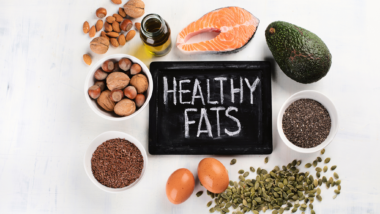Discovery of Vitamin A
Vitamin A was first discovered back in 1912, by a Polish biochemist named Casimir Funk. He came up with the word vitamine, which was later given the name vitamin. Funk was the first to discover vitamins as we know them today, although vitamin A was actually the first one discovered, hence the letter “A” in the title of the vitamin.
Natural Sources of Vitamin A
You can find vitamin A in natural foods such as oranges and yellow fruits. It can also be found in vegetables as well, such as spinach and fats. When found in vegetables, vitamin A is water soluble, coming in the form of beta carotene. The beta carotene form of vitamin A can be eliminated from your body through natural processes, making it an excellent way to get vitamin A.
Importance of Vitamin A
Vitamin A is required by the body on an every day basis to maintain healthy skin and keep your eyesight on track. There are many people who say that carrots provide enough vitamin A to prevent you from getting night blindness. The fact is, ancient Egyptian doctors prescribed liver in their time, which they said contained enough vitamin A to combat night blindness. Vitamin A is also known as an antioxidant, which makes it ideal to prevent cancer and anti aging. Along with these benefits, it also helps with your immune system as well.
Absorption of Vitamin A
To get the proper absorption of vitamin A, you’ll need to consume fat. Those of you who happen to be on a low fat or restricted diet, simply may not be getting the right amounts of vitamin A from your supplements that you may think. To get the proper absorption of vitamin A in your diet, you’ll need to consume a high enough level of protein. Protein combines with vitamin A to make it stronger, and help it move through your body.
Recommended Daily Intake
On a normal day, you should be consuming around 5,000 international units (IU) of vitamin A. Depending on your health and your age, you may need to consume more or less. The safest form of vitamin A is beta carotene as mentioned above, and it can be taken in much larger doses. No matter what age you may be, you can feel safe to consume high amounts of vitamin A in the form of beta carotene.
Consequences of Deficiency
If you don’t consume enough vitamin A in your diet, you’ll end up with a deficiency. A deficiency is never a good thing, as it normally results in skin problems, increased infections, and even night blindness as well. A prolonged deficiency in vitamin A can put you at a risk for cancer as well, and you’ll also miss out on any effects of anti aging that the vitamin might have. Although you should begin taking it immediately if you have a deficiency, the effects wouldn’t be the same as they would be if you stayed up to date with the right amount on a daily basis.
Potential Risks of Excess

On the other hand, if you are getting too much vitamin A, you’ll put yourself at risk for pain in your joints, abdomen, and your bones. Even though too much or not enough can cause you serious side effects, you should always get the right amount in your diet. Vitamin A is very important, and should always be included in your diet. You can find it in many foods, or take supplements that include the well needed vitamin. If you are going to take supplements, you should make sure that they provide the right amounts – with no side effects.
Healthy Hair Vitamins
There a number of different specific hair vitamins and minerals that can play a major role in helping a person have a healthy head of hair. If a person does not have sufficient hair vitamins then the deficiencies can lead to thinning hair or even total baldness in the most severe cases. The fact is that the state of a person’s hair reflects the overall condition of their body. Extra hair vitamins are likely to be needed if a person is generally unwell or is undernourished as their hair will show damage too and may even stop growing.
Some of the most important hair vitamins that a person needs to have healthy hair include B6, biotin, inositol and folic acid. The best way to ensure that a person receives enough of these essential hair vitamins are for them to be taken as vitamin supplements. It is not just hair vitamins that are necessary for healthy hair though as there are a number of minerals that are essential, including magnesium, sulphur, silica and zinc.
The most essential hair vitamin is vitamin a but the best form of this is to include in the diet is beta-carotene. This is because the hair vitamin A can be toxic if consumed in large quantities but beta-carotene has no such problems and is converted by the body into vitamin A that can be used to promote healthy hair. Of course, vitamin A is not just a hair vitamin, it is also needed for a number of other functions including normal growth of bones, skin, nails and the protective sheath surrounding nerve fibres.

Protein is another essential hair vitamin. This is because hair itself is essentially protein. The amount of this hair vitamin that a person consumes in their diet can affect the hair directly. If a lot of protein is included in a person’s diet then this hair vitamin will lead to improved hair growth and a far fuller head of hair. However, a person who has a diet that is lacking in this hair vitamin will suffer from thinning hair and slow hair growth.
Of course, it is not just hair vitamins and minerals that are needed to ensure that a person has healthy, strong hair. There are a number of researchers who have found that there are direct links between the overall health of a person and the condition of their hair. If a person is under a lot of stress or suffers from a lack of sleep then their hair is also likely to suffer and it is likely that their diet will not provide enough hair vitamins to counter these effects. Hair vitamin and mineral supplements can be the solution to weak and damaged hair.


